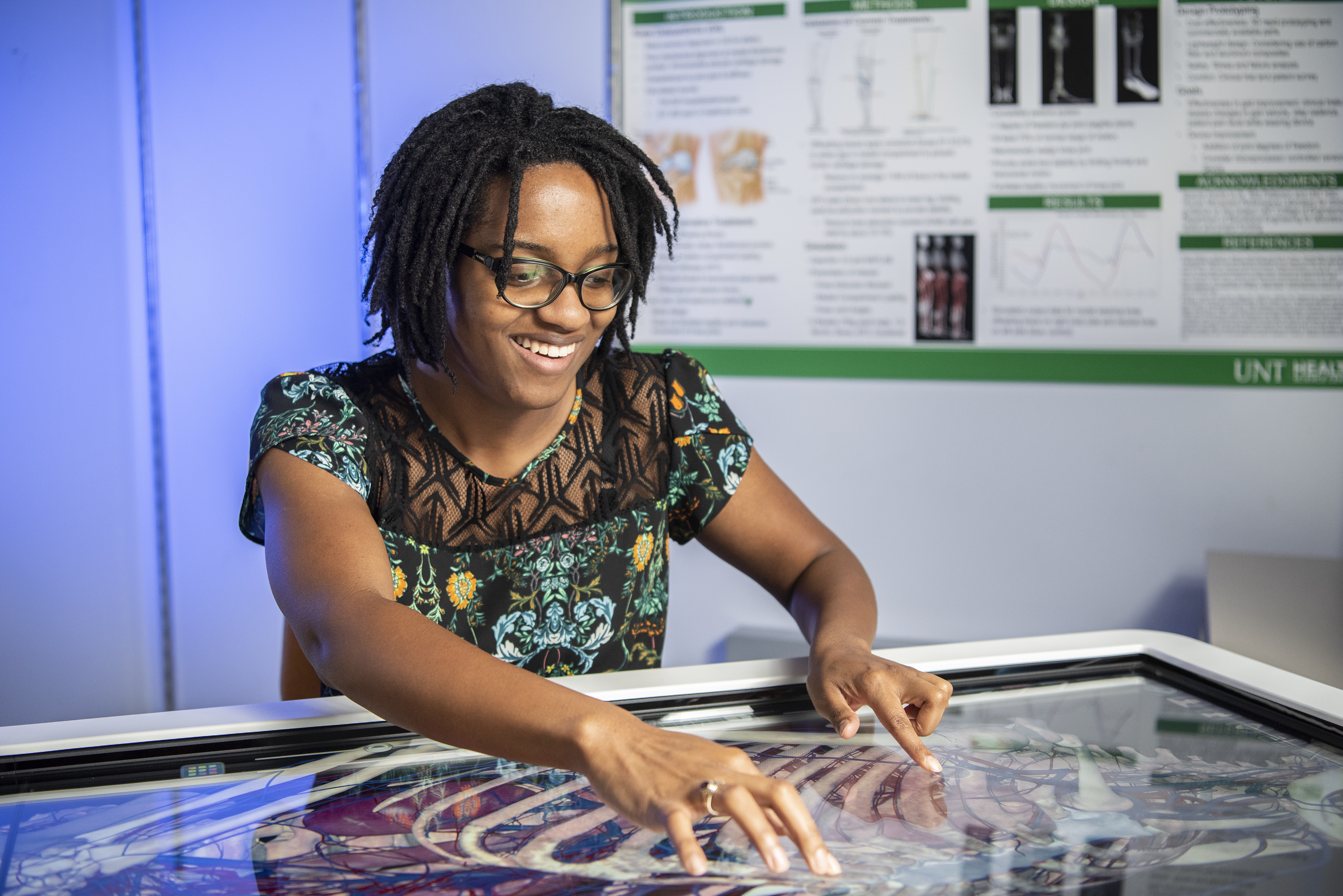
What: Biomedical engineering building ribbon cutting
When: 2 p.m. Aug. 29 (Thursday); Tours begin at 2:30 p.m.
Where: Near UNT’s Discovery Park Pavilion area, located on the northwest side of
the building, 3940 N. Elm St., Denton
DENTON (UNT), Texas – The University of North Texas has opened its new $12.6 million biomedical engineering building where glass-walled, open concept labs and classrooms create a transparent and collaborative environment for cutting-edge research and learning.
Biomedical engineering is one of the fastest growing programs at UNT, increasing more than five-fold since its first class in 2014.
The 26,250-square-foot building, which opened for classes Aug. 26, is located on UNT’s Discovery Park campus and provides faculty and students with modern classrooms, research labs, facilities for microscopy, cell culture and optics as well as teaching labs and a senior design lab.
The new labs feature hi-tech instruments such as a bio 3D printer that prints cells mimicking human tissue and a virtual dissection table that allows students to delve inside the human body without a scalpel. Inside research labs, faculty investigate exoskeleton technology that may someday help people with limited mobility; develop nanotechnology and optics to diagnose cancer; and biopolymers and flexible bioelectronics that may help doctors deliver medications and manage illnesses.
The new facilities have allowed UNT to recruit new faculty and students to its growing biomedical engineering program. Four new full-time faculty are joining the department this fall, bringing with them a range of expertise from neuroelectronics to electrophysiology.
“We are committed to continued growth and providing our students with a diverse, state-of-the-art education that allows them to find jobs not only in biomedical engineering, but in other industries as well,” said Vijay Vaidyanathan, biomedical engineering founding chair. “This building is designed to inspire and encourage learning and new discovery through research and collaboration.”
The biomedical engineering program offers diverse educational tracks and unique degree plans, providing students opportunities to specialize in audiology, public health, music performance health, business, management, computer science and biology.
Undergraduate students are able to pursue two minors in addition to their major in biomedical engineering. Master’s students can complete an additional master’s degree, including an MBA, in just two years. Students interested in a Ph.D. can pursue materials science or mechanical and energy engineering with a specialization in biomedical engineering.




